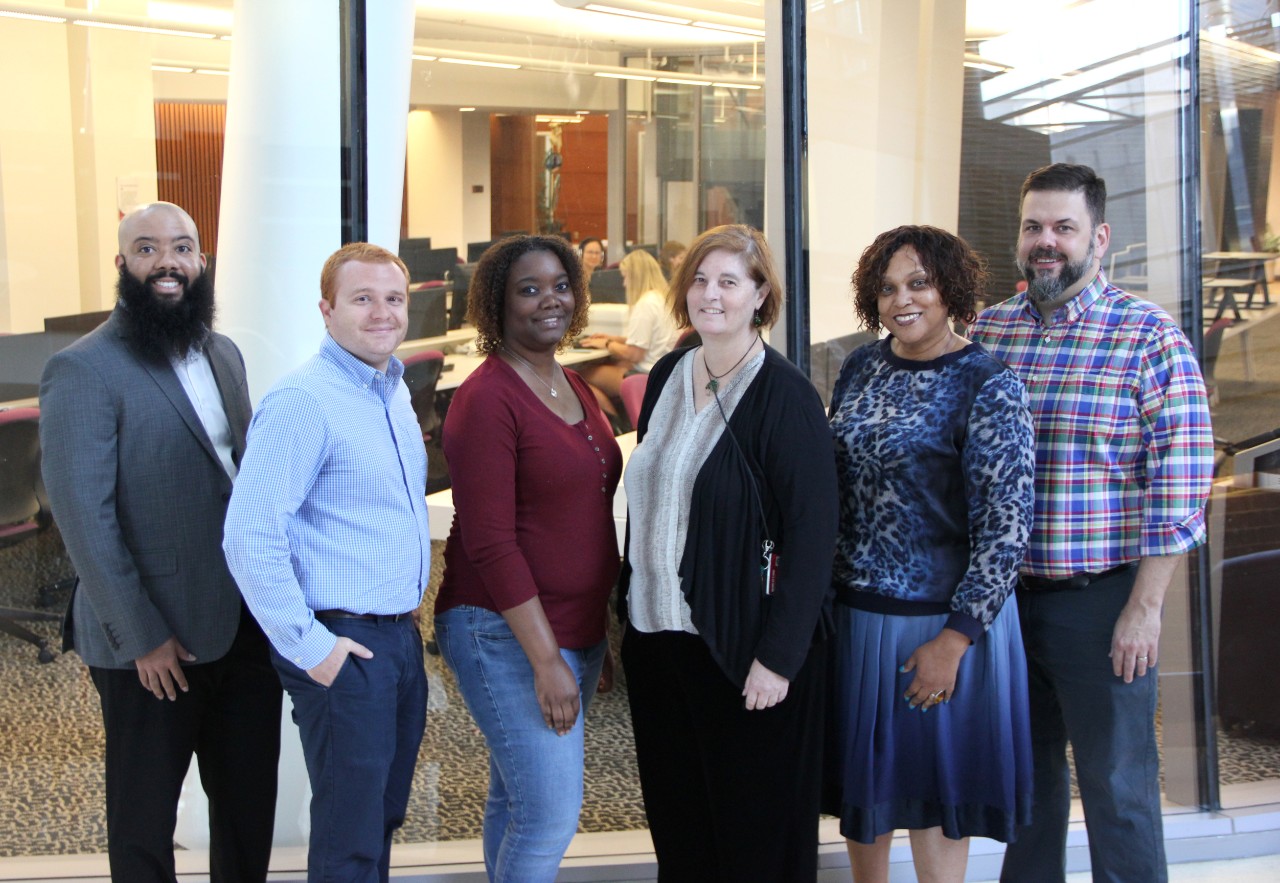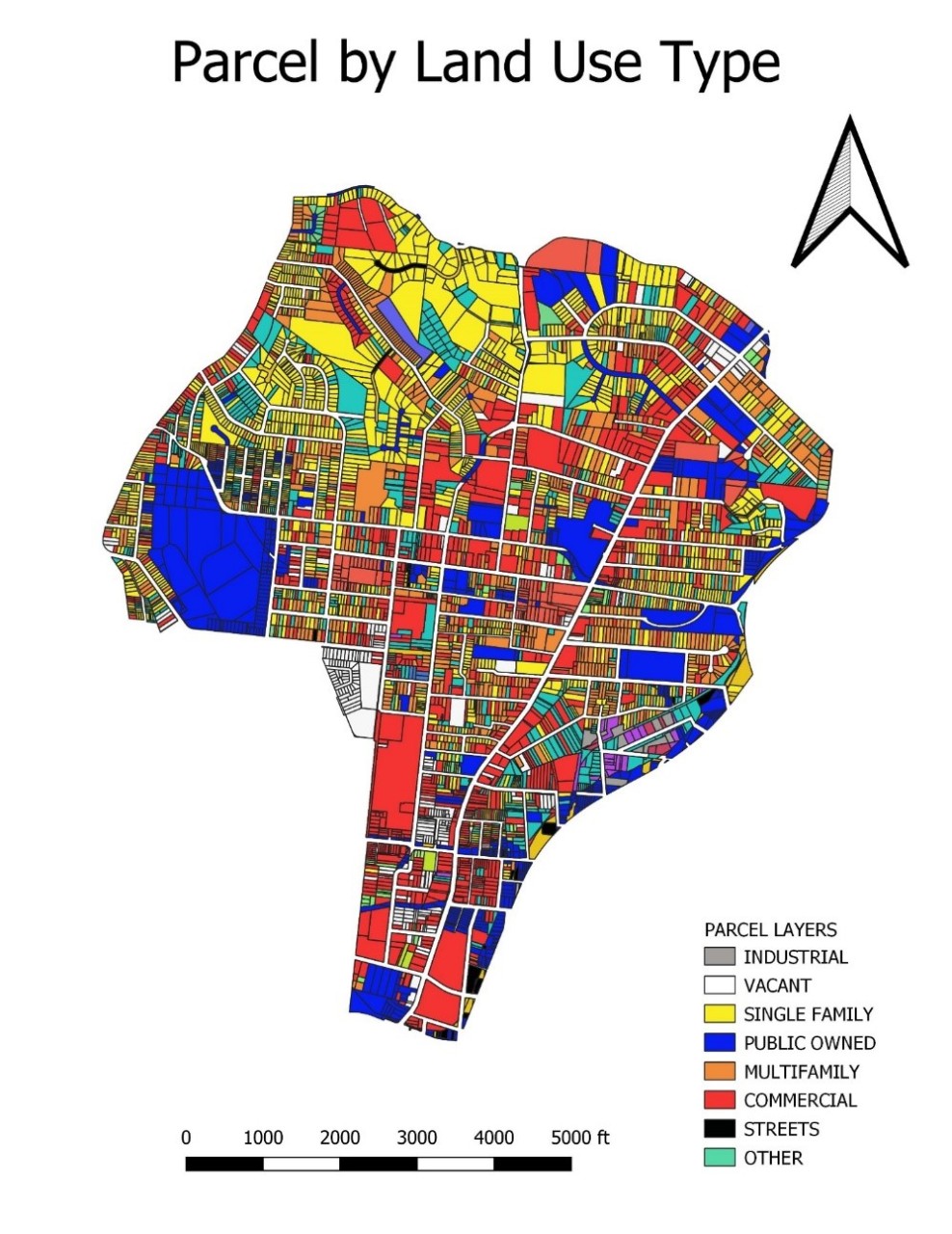
Big data. In the library?
UC’s Libraries Research and Data Services team is advancing research at UC. Learn how, and what they can do to help you.
UC Libraries Research and Data Services group might be one of UC’s best kept secrets, but they’re ready for that to change. The team provides innovative and effective research partnerships by engaging researchers in data services through collaboration, consultation and training. Their work aims to amplify the global UC Research profile, an important focus of UC’s strategic direction, Next Lives Here.
In 2014, the UC Libraries Strategic Plan outlined a need for research and data services. That need was met with the creation of Research Services and Health Informatics Strategic Initiatives team, which has developed into today’s Research and Data Services group and become an official unit of the Library. The team includes four informationists who have specialized expertise in:
- Biomedical research
- Clinical research
- Natural and physical science
- Social sciences such as business, education, psychology and women and gender studies.
Additionally, the team includes a data visualization specialist who looks at the lifecycle of the data and tells a story by creating a visualization or picture of the data.
“We want faculty to tell us about their research and what they are struggling with,” says Tiffany Grant, assistant director for research and informatics and co-leader of R&DS at UC Libraries. “We can serve as a liaison to connect them with knowledge, other researchers or subject matter experts, research resources as well as provide consultation services.”
Grant says the team also provides data management, data analysis and project management assistance.
The Libraries Research and Data Services’ mission is to inspire the creation of knowledge, and enhance the research productivity across the research community.
What makes UC, is UC. It’s the specialized research conducted here and the way the research community comes together.
Amy Koshoffer, assistant director of research and data services
“UC’s Office of Research serves as the university’s guide post, creating the research strategy, and we are the boots on the ground. We really support one another,” adds Koshoffer.
The impact the Research and Data Services team is making can be seen throughout our urban community and beyond. In fact, they’ve been involved in several high profile projects, but you probably didn’t know it. Here are a few:

Heat map created for Light Up Avondale Project. The Research and Data Services team created the map to emphasize key attributes of property in Avondale.
Light Up Avondale
The Light Up Avondale project aims to help neighbors reduce energy costs, inefficiencies and crime. A grant awarded to the Cincinnati Zoo & Botanical Garden from Duke Energy transitions lightbulb technology to LED, literally brightening the neighborhood. Each residence that upgrades to 100% LED bulbs can save anywhere from $200-$400 a year on its energy bill.
The Research and Data Services team assisted project members, including UC students, with data processing (geocoding), discovery (finding/using CAGIS data alongside the project dataset), and map creation.
“The Research and Data team walked me through the step-by-step process of merging my dataset to create my Avondale maps,” says Diana Garza, a UC student who worked on the Light Up Avondale Project. Garza utilized building stock data from the Hamilton County Auditor’s property portal, combined CAGIS, parcel data, land use codes and QGIS to perform a market segmentation study to understand Avondale’s building stock. The data visualization maps were also provided to the Cincinnati Zoo for the continued implementation of the project.
Communities Actively Researching Expose Study (CARES)
Members of the UC Libraries Research and Data Services Team compiled and visualized data to understand dynamic changes in air quality at monitored sites in the CARES partner communities. Air quality in the city of East Liverpool, Ohio, was found to have concentrations of manganese 30 times higher than the maximum level allowed by the U.S. Environmental Protection Agency (EPA). The UC study looked at 106 children from ages 7 to 9 in East Liverpool, and found an association between higher levels of manganese in their hair and lower IQ scores. The findings resulted in an EPA-issued consent decree requiring safeguards to reduce emissions from manganese, which is used in the production of steel and other industrial processes. The R&DS team members helped to archive the monitoring data in UC’s institutional repository Scholar@UC and to improve the website for better communication about the CARES research.
National Institutes of Health Awards $2.5 Million to UC for Study in Voice
You may have heard about the unique collaboration between UC Professor of Otolaryngology Sid Khosla and Ohio Eminent Scholar Ephraim Gutmark, distinguished professor of aerospace engineering. With $2.5 million in funding from a National Institutes of Health grant, the two have examined airflow patterns and how they affect engines. The two then applied the same understanding to study voice in effort to help patients with voice disorders.
“Although the purpose is different, the physics concepts are the same,” Gutmark explained in a previous story in UC Magazine. “Once you understand how airflow structure produces acoustics, you can either make the acoustics quieter — for jets — or make them stronger — for voices."
UC’s Libraries Research and Data Services team played a key role in the research project by taking data provided by Khosla and Gutmark and organizing it to tell a story — data visualization. The team received an administrative supplemental grant from The National Institutes of Health and the National Library of Medicine that allowed informationists in the Donald C. Harrison Health Sciences Library to develop a web-based method for data sharing and display. The team created a library of data for model validation, deposited the data into an open-source repository, which also allowed researchers in the otolaryngology community to view and share their research data. Additionally, the team created a web-based portal to assist the UC research team with expert searching of literature focused on the biomechanics of voice.
“We want researchers to know we are here to help,” says Koshoffer. “UC Libraries is an intellectual hub of the university, and our partnership with the Office of Research and IT@UC can help amplify UC’s research profile.”
For more information, contact the UC Libraries Research and Data Services group via email at AskData@uc.edu
Big Data Workshop - Oct 1 & 2
Learn more about managing Big Data by attending a two-day workshop, Oct 1 -2, 2019, facilitated by UC Libraries and IT@UC. The workshop will introduce scalable data analytics and machine learning.
Learn more and register.
Featured image at top: UC Libraries Research and Data Services (L-R) Don Jason, Richard Johansen, Tiffany Grant, Amy Koshoffer, Lori Harris and Ted Baldwin. Photo/Joshua Wientge/Co-op 2.0 Intern, Office of the Provost.
Related Stories
UC 1819 sewer tech startup makes a $7.5 million splash
March 31, 2025
A pioneering startup that emerged from the University of Cincinnati 1819 Innovation Hub’s Venture Lab pre-accelerator program in 2018, was recently acquired by global solutions provider IDEX Corporation for $7.5 million. Subterra, founded by Robert Lee, revolutionizes sewer and pipeline infrastructure monitoring through its innovative, AI-driven technology, which aligns with IDEX’s family of business solutions.
South by Southwest innovators break down the future of...
March 31, 2025
Top tech and media leaders congregated at South by Southwest 2025 to speak of the future of storytelling and offer tips. Below are our takeaways from four of the festival’s highlight sessions.
UC doctor patenting first at-home endometriosis diagnostic test
March 31, 2025
March is endometriosis awareness month. Endometriosis is a condition that can be debilitating and is estimated to affect more than 6 million women in the U.S. Endometriosis occurs when tissue similar to the lining of the uterus grows outside of the uterus, causing pain, inflammation and potential infertility. The road to a diagnosis has been challenging for many women, but a University of Cincinnati researcher has developed a noninvasive diagnostic test that could make a difference.
